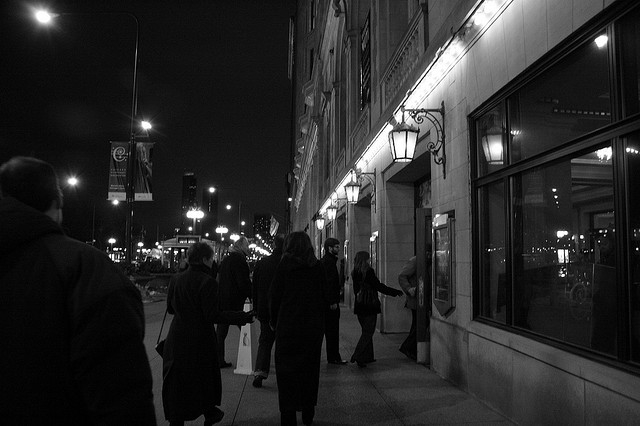What Does 'World Class' Mean For The CSO?
By Marielle Shaw in Arts & Entertainment on Nov 24, 2014 8:00PM
The Tribune recently mused on the benefits of the Chicago Symphony Orchestra's touring to keep up their "world class" status. And it got us thinking—what makes the CSO, or any orchestra, world class? Certainly, touring the world, even when not terribly profitable, affords the group direct international exposure, and the chance to perform in some of the most prestigious, storied halls in the world, while collaborating and interacting with different cultures, including those from which the repertoire itself has origins.
In fact, status may be even more important for groups like the Chicago Symphony Orchestra than they used to be, as multiple cities in the US are seeing their “world class” symphonies face budget cuts, lockouts or disbandment. So what’s in a term?
Science seems to have an opinion, and it’s more to do with sights than sounds. We found a study by University College of London which found that in silent recordings of orchestras, an important factor in how they were perceived was how they appeared as a group, and a sense of flow and communication among members. A community of musicians working together. This is actually a principle fostered by Ricardo Muti, the CSO’s current director, who wants the group to act as an ambassador through music.
Of course, the city an orchestra comes out of shapes it. Chicago itself is a world class city, with big impact, drawing visitors from all over the world. It's also helped the CSO create a uniquely recognizable sound. And that sound has joined with countless others, through an enormous history of collaborations with astounding musicians, to form an amazing effort towards education and fine arts support, with exacting standards for every musician.
On top of this, the CSO takes great pains to interact with the city at large, with new efforts all the time to be involved with the people living here. This year’s addition, the online zine Sounds and Stories, brings a cornucopia of information and media on the symphony, its members and the stories behind the programming, giving concert-goers even more information on the individuals that make up the group, the songs that they’ll hear and the projects going on within the organization.
To walk into symphony hall for a concert is to see a group which inspires, educates and breathes as one, hanging on Muti’s every direction. Each member lends their individual excellence to a bigger tapestry of sound that is near unrivaled, consistently being ranked in the top 10 best symphony orchestras in the world. Our conclusion? There’s no question. Even if the Chicago Symphony Orchestra never left the confines of Symphony Hall, they’d be world-class. But we’re damn happy, in an economic environment that has not been kind to the fine arts, to see them thrive and share them with the world. We’re a lucky city, and grateful.
If you’d like to continue to support world class music in Chicago, why not pick a concert and treat yourself and your family. And, if you are a supporter of the fine arts who’d like to join the fight to save the symphony in other cities, check out these sites to support the effort in Minnesota and Atlanta.
